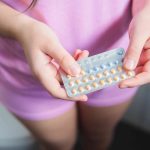What is hypoglycaemia?
Hypoglycaemia (hypo), is when you have diabetes and have too little glucose (sugar) in your blood. A blood glucose level lower than 4 mmol/L is considered hypoglycaemic.
What causes hypoglycaemia?
A hypo can happen for many reasons such as:
- using too much insulin or too much of your glucose lowering medicine
- delaying or missing a meal or snack
- being more active or exercising more than usual
- a hypo can happen 12-15 hours after exercise
- a hypo can happen while you are asleep
- not eating enough carbohydrates
- carbohydrates are found in potatoes, bread and pasta
- drinking alcohol, especially without much food
- feeling unwell and unable to eat or drink
- vomiting or diarrhoea
- breastfeeding
Sometimes there is no clear reason for why you have hypoglycaemia.
What symptoms are related to hypoglycaemia?
Hypoglycaemia can affect different people in different ways. If you have diabetes you will learn over time how it feels for you.
If you are having a hypo, you might:
- be trembling or shaking
- feel weak
- feel sweaty
- feel dizzy or light-headed
- have a headache
- feel tearful or like crying
- feel hungry
- have tingling lips, tongue or cheeks
- feel that your heart is beating faster
- have blurred vision
- feel irritable or nervous
If your hypo gets more severe you could:
- become confused
- find it hard to concentrate
- have slurred speech
- behave strangely, or look like you are drunk
- have a seizure (fit)
- become unconscious
If you feel any of these symptoms, check your blood glucose level. If your blood glucose level (BGL) is below 4 mmol/L you should have some quick acting glucose.
How is hypoglycaemia treated?
It is important to treat hypoglycaemia straight away. This will stop your blood glucose level from dropping even lower. Untreated hypos can be dangerous.
Follow these steps to have some quick acting glucose.
Step 1
Have about 15 grams of quick acting carbohydrate. Choose something that is easy to swallow such as:
- glucose tablets equal to 15 grams carbohydrate OR
- 6 or 7 regular size jellybeans OR
- half a can (150mL) of regular soft drink (not ‘diet’) OR
- half a glass (150mL) of fruit juice OR
- 100mL of Lucozade OR
- a tube of oral glucose gel equal to 15 grams carbohydrate OR
- 3 teaspoons of sugar or honey
Wait for 10 to 15 minutes. Check your blood glucose levels again to see if your blood glucose level has risen above 4 mmol/L.
If your blood glucose level is still below 4 mmol/L, repeat Step 1 with another 15 g of glucose.
If your blood glucose level has risen above 4 mmol/L go to Step 2.
Step 2
Now you should eat a snack or meal with longer acting carbohydrate, such as:
- a slice of bread OR
- a glass of milk or soy milk (250mL) OR
- a piece of fruit OR
- 2 or 3 pieces of dried fruit such as apricot OR
- a tub of yoghurt OR
- a meal including pasta or rice
How is hypoglycaemia diagnosed?
When you are diagnosed with diabetes you will be given a blood glucose meter. If your blood glucose level is lower than your target range, this is low blood sugar. If the blood glucose level is below 4mmol/L this is hypoglycaemia.
It is normal for your blood glucose levels to vary at different times during the day
Can hypoglycaemia be prevented?
Tell the people close to you that you have diabetes. Make sure that they know what to do if you are showing signs of a hypo.
Have a meal that includes carbohydrates if you plan to drink alcohol.
If you are using insulin or some other glucose lowering diabetes medicines, you may be at increased risk of hypoglycaemia. You may need an individual plan to manage hypoglycaemia. Follow the advice of your doctor or diabetes nurse.
If you have diabetes, you should keep a hypo treatment kit. Carry it with you when you are out. The kit should contain:
- a way to check your blood glucose level
- 2 or 3 quick acting glucose treatments
- a snack that contains longer acting carbohydrate
If you have a glucagon injection add it to the kit.
Complications of hypoglycaemia
If hypoglycaemia is not treated your blood glucose levels will continue to drop. This can lead to a severe hypo. You will feel very drowsy and won’t be able to swallow. You will need help from someone else.
If you have a severe hypo, you can become unconscious or have a seizure. The brain may not be getting enough glucose.



